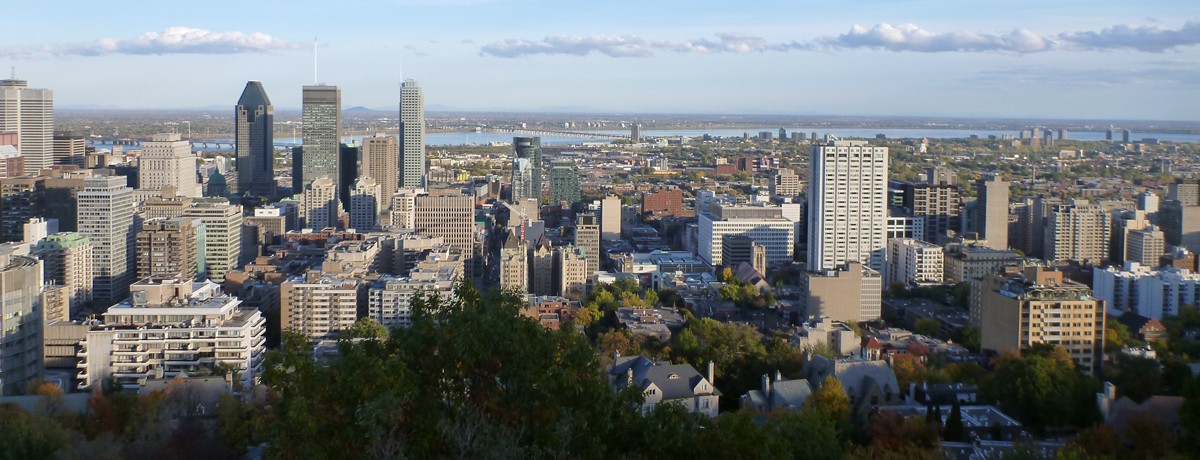Hochelaga, an Iroquoian village visited by Jacques Cartier on October 1535, gave its name to the Archipelago situated at the confluence between St. Laurent and Ottawa river. The largest of its islands is known today as Montreal.
An enthralling blend of North American fervor and European charm, with a dynamic cultural scene, rich gastronomy, festival after festival, gathering places where creativity is expressed without limits... bilingual Montréal is a fun city to visit and to make home.
Cosmopolitan Montréal, epicurean and festive, boasts numerous architectural marvels and city parks.
Situated 1600 kilometers inland from the Atlantic, Montreal is one of the busiest inland ports in the world and a key transfer point for transatlantic cargo. There is no better place to start or end a cruise along the majestic Saint Lawrence River than in the Old Port of Montreal.
Quartier des Spectacles designed as a center for Montreal's cultural events and festivals. Every year, throughout the year, Montréal hosts over 100 festivals, among which Montreal International Jazz festival, the Francofolies and the Just for Laughs comedy fest.
Mount Royal Park was designed by Frederick Law Olmsted, who also landscaped New York's Central Park. Discover the trail that leads up to the illuminated cross. Paul Chomedey de Maisonneuve, the city's founder, erected the first cross on Mount Royal in 1643, thereby fulfilling his vow to the Virgin Mary in his prayers to end a disastrous flood. Dating from 1924, the present cross is 31.4 meters tall with an arms span of 11 meters and it stands 252 meters above the St. Lawrence River.
Built in 1705 as the residence of then-governor of Montreal, Claude de Ramezay, the Château Ramezay was converted into an historical museum and portrait gallery in 1894.
Pointe-à-Callière Museum, designed by architect Dan Hanganu, was founded in 1992 as part of celebrations to mark Montreal's 350th birthday.
Montreal is renowned for its churches. As described by Mark Twain, "This is the first time I was ever in a city where you couldn't throw a brick without breaking a church window."
Notre-Dame Basilica is located at 110 Notre-Dame Street West, at the corner of Saint Sulpice Street and faces the Place d’Armes square.
Completed in 1967, Saint Joseph's Oratory of Mount Royal, is Canada’s largest church and claims to have one of the largest domes in the world.
Habitat, or Habitat67, a model community and housing complex designed by architect Moshe Safdie, is an experiment which and is regarded as both a success and failure, but nevertheless is one of the most recognizable buildings in Canada.
In 1974, the Complexe Desjardin office tower complex was constructed … Montreal underground city - 32 kilometers’ worth of tunnels over twelve square kilometers of the most densely populated part of the city.
Nicknamed "The Big O", a reference to both its name and to the doughnut-shape of the permanent component of the stadium's roof, Montreal’s Olympic stadium was built in the mid-1970s for the 1976 Summer Olympics. It is also called "The Big Owe" to reference the astronomical cost of the stadium and the 1976 Olympics.
The epic epicureanism experience continues …
Next: Le XVI XVI
Previous: Basel







